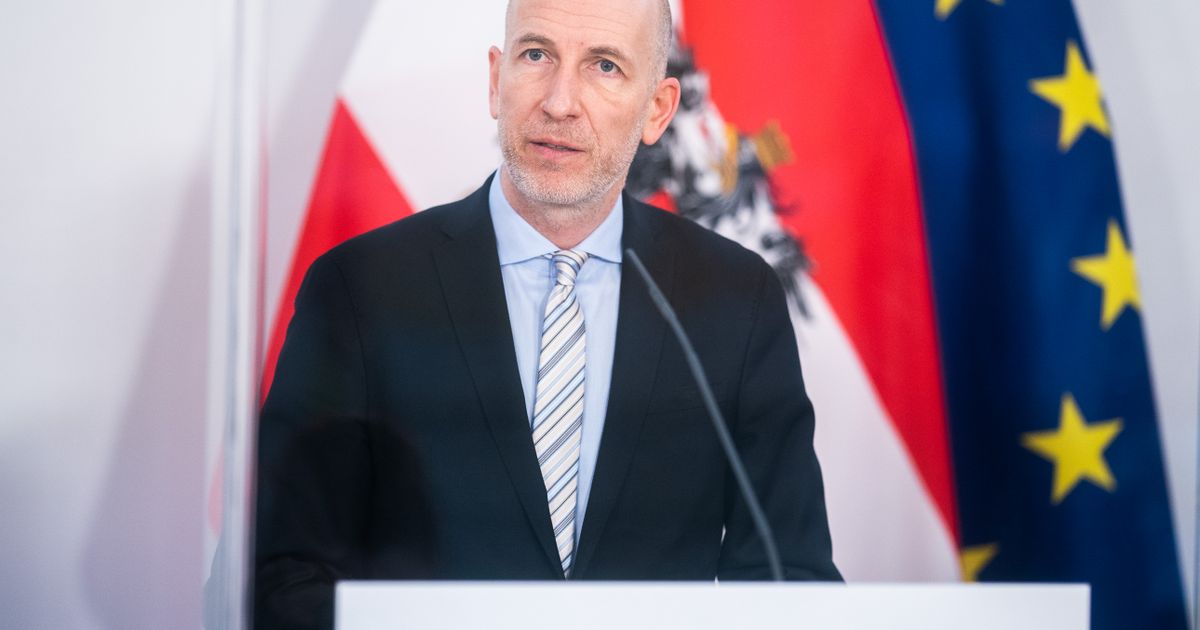Corona short-time work will be extended by three months until the end of June | Tyrolean daily newspaper online
Arbeitsminister Martin Kocher (ÖVP).
© GEORG HOCHMUTH
Vienna – The turquoise-green government is extending the Corona short-time work model by three months until the end of June 2021 – but after this phase 4 of short-time work there should be a gradual phase-out if the health situation and the situation on the labor market allow, Labor Minister Martin Kocher announced (ÖVP) on Wednesday after the Council of Ministers.
📽️ Video | Corona short-time work will be extended
“I think this is necessary as long as there is still the risk of large-scale closures,” said Kocher in a press conference. “The hope is of course that opening steps are possible, but as long as the risk is there, there must be a safety net through short-time work . “
The net income replacement rate of 80 to 90 percent for employees remains unchanged in phase 4 of short-time work. Working hours can normally be reduced to 30 percent – in industries that have to be kept closed due to the officially ordered lockdown, a reduction to 0 percent is also possible.

© APA
The AUA, which is not officially closed, but is also suffering massively from the pandemic, assumes that it can reduce the work performance of its employees with a social partner agreement as before to below 30 percent. “We have also agreed on such an exception for the period from October 2020 to March 2021, which makes it possible to reduce the average workload to at least 10 percent. How things will continue from April onwards will show in the negotiations with the unions, which are now starting, “said AUA spokeswoman Tanja Gruber when asked by APA.
Further training will continue to be promoted and should be promoted – companies get 60 percent reimbursed by the AMS if they let their employees qualify during short-time work. “We urge everyone to use that now in the next phase.”
32 billion paid out or pledged for aid measures
Short-time work in its current form is necessary as long as there are official closings, but it is a model for times of crisis, said Kocher. “That means, after June 2021, we hope that there will be a possible new variant of short-time work, an exit from Corona short-time work.” Short-time work will continue to be needed, but in a new variant, and one will start in the next few weeks to prepare the new design of short-time working for the time after the crisis and without large-scale closings.
Finance Minister Gernot Blümel (ÖVP) said that around 32 billion euros have been paid out or legally binding for various aid measures. The cancellation bonus can be requested since yesterday. “Since yesterday evening, since this cancellation bonus can be applied for, around 3000 applications have been submitted.” In addition, the aid measures for the indirectly affected companies can also be applied for for November and December. So far, around 670 companies are under the EU’s 800,000 euro cap for direct aid has been initiated and this upper limit has been increased.
“All in all, short-time work is the biggest chunk of the 32 billion,” said Blümel. “To date, a total of 10.6 billion euros have been legally binding and 6.1 billion euros have been paid out.” The Austrian short-time working model is “undoubtedly one of the most generous and best in all of Europe”.
Prevent misuse of subsidies through controls
It is important, however, to prevent misuse of subsidies by “black sheep”. “The financial police have carried out around 7,000 short-time work inspections so far and in over 3000 cases a control message has also been sent to the AMS.” That alone is not a problem because the short-time work is billed retrospectively – “however, in 250 cases there was an urgent suspicion of misuse of subsidies that had already taken place.”
AK President Renate Anderl also emphasized the importance of controls: “What we do not want is that you make a basket of allowances.” The employees should now be given the opportunity to use short-time work for qualification. Short-time work does cost money, “but if the employees who are now on short-time work were at the AMS, then one honestly has to admit that it would cost even more money. “
Questions like overtime and tips are still open
The AK President emphasized that short-time working is a burden not only for companies, but also for employees. For example, a waitress who earns 2100 euros gross would also lose tips of around 500 euros a month. Together with lost overtime, that is a loss of earnings of almost 11,000 euros per year.
For IV President Georg Knill, it is “important and sensible to extend short-time work until the summer”, because this gives the company the necessary planning security. “Of the currently around 460,000 employees on short-time work, around 75,000 are in the manufacturing sector active “, which is why short-time working is also very important for industry.
Overall, it was “a really, really great package,” said ÖGB President Wolfgang Katzian – even if questions such as overtime or tips were still open. The next three months should be used for discussions about the time after that. An unresolved problem above all In tourism or for apprentices, you have to have a full month of remuneration in order to be able to go on short-time work.
According to WKÖ President Harald Mahrer, the first results of the cautious opening in trade are showing positive effects. “Everyone obeys the rules. It is being tested on a massive scale, although there have been great concerns about whether it will be accepted. “Now you need more incentives for testing.” By opening up other areas, I create these incentives because the frequency of going to an inn is higher than going to the hairdresser. ” (APA)
